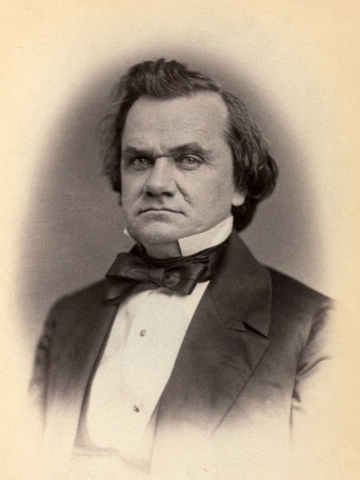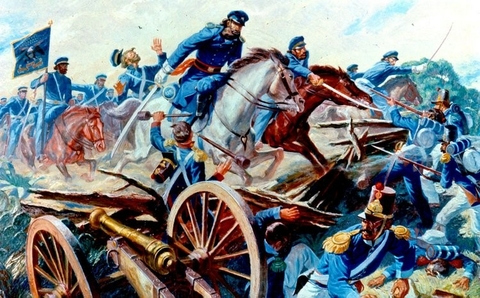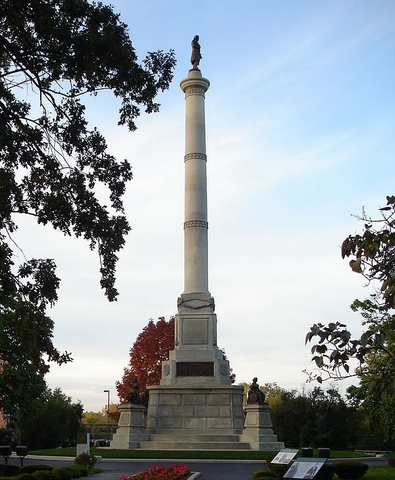Stephen A. Douglas and the Fate of American Democracy
Peck Productions (2017), 56 minutes
This film tells the intertwined story of Stephen A. Douglas and the American nation from the country's founding to the outbreak of the civil war. Born in 1813, Douglas migrated to Illinois from New York in 1833, eager to carve out his future on the frontier. He quickly became a major force in Illinois politics, founding its Democratic Party, and using it as a base from which to ascend to national greatness. By 1846 he had laid claim to one of Illinois' two seats in the United States Senate, where he soon earned national acclaim as the primary architect of the Compromise of 1850, which resolved bitter sectional strife over slavery and possibly saved the nation from imminent civil war. Remarkably, at the age of 37, he stood poised for greatness on the national stage, while his Illinois rival, Abraham Lincoln, toiled away in relative obscurity as a lawyer in Springfield.

Unlike Lincoln, Douglas almost perfectly reflected mid-nineteenth century America's relentless expansionism, unbridled optimism, ardent democracy, belligerent patriotism, and considerable tolerance for slavery. He urged not only a continental empire, stretching from coast to coast, but also a hemispheric one, incorporating Cuba, Mexico, and territory in Central America. He believed that American expansion promoted freedom because it enlarged the reach of the country's democratic and progressive institutions, and hence he unhesitatingly supported the war against Mexico in 1846. Assuming that slavery would eventually ebb away and unconcerned with the fate of blacks, he paid no mind to the prospect of its expansion. This issue deeply troubled many northerners. Of far greater concern to Douglas was stretching a railroad across the continent and settling the vast territories that lay between the Mississippi River and the Rocky Mountains. An intercontinental railroad would produce incalculable national benefits, annihilating physical barriers that divided the Republic, enabling access to vast natural resources, and opening markets to American commerce throughout the Pacific.

However, the volatile mix of expansion and slavery proved tragic for Douglas and the nation. Indeed, his naively progressive convictions caused him to play the leading role in the sectional drama that tore apart the country by 1860. His tolerance for slavery led him to promote the Kansas-Nebraska Act in 1854--a law that permitted slavery's expansion where it previously had been prohibited--and the consequent backlash in northern states by 1860 brought down the Democratic Party in the North. The subsequent election of Abraham Lincoln on an antislavery platform--as the first Republican Party president--spurred southerners to secede, precipitating civil war.

Despite his bitter hostility to antislavery activists, Douglas rallied Democrats to the cause of the Union in the wake of the southern attack on Fort Sumter. Determined to save the Union, Douglas gave his celebrated Protect the Flag speech to the Illinois General Assembly on April 25, 1861, urging all Illinoisans to support Lincoln's administration. He died soon afterward, ravaged by illness and exhaustion, in Chicago and was buried on a portion of his estate Oakenwald, where his tomb now sits. Artist Leonard Volk designed the massive monument, completed in 1881, and featured a 10-foot statue of Douglas, facing east, standing atop a 46-foot column of marble.
Praise for Stephen A. Douglas and the Fate of American Democracy
Brings vividly to life the story of Abraham Lincoln's chief rival and one of the most important American politicians of the nineteenth century
Theodore Karamanski, Professor of History, Loyola University Chicago
An unusually thought-provoking documentary that reveals Stephen Douglas's and the nation's terrible dilemma over slavery, democracy, and expansion.
Robert May, Professor Emeritus of History, Purdue University
